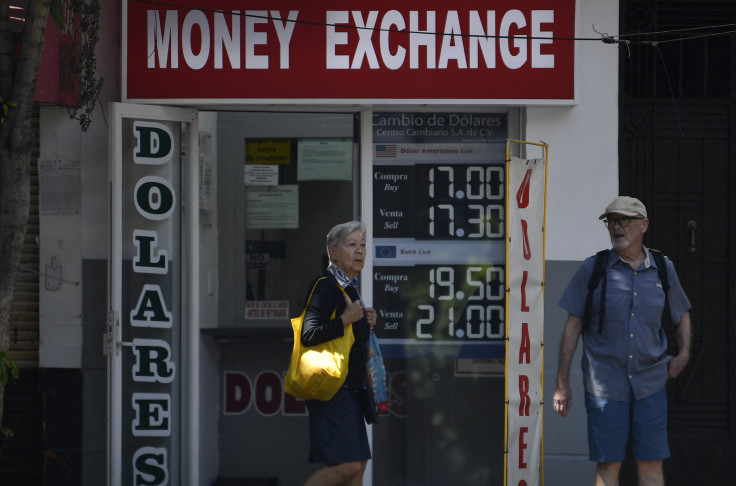
Remittances sent home from Mexicans in the U.S. have dropped more than 15% year-on-year as figures continue to drop amid the Trump administration's immigration crackdown and threats of imposing taxes on remittances.
Banxico, the Mexican central bank, said remittances have decreased by almost 6% since the beginning of the year and more than 16% year-on-year in June. That month, $5.2 billion were sent to Mexico.
The bank added that June was the third consecutive monthly decrease. The silver lining highlighted is that the average amount sent, $409, is higher than the previous year.
Overall, almost $63 billion were sent to the country in remittances over the past 12 months, less than 2023 and 2024. This marks a reversal after 11 consecutive years of growth, as previously reported by BBVA Research.
An April report by the central bank was already warning about the trend. "The deterioration of the labor market in the U.S. and U.S. migrants' fear of going out to work and sending their remittances, for fear of being deported," explained Gabriela Siller, Director of Economic Analysis at Banco Base when interviewed by Reuters.
Remittances could be further impacted by a 1% tax on remittances instated by the Trump administration in its "Big, Beautiful Bill." However, Mexican President Claudia Sheinbaum said last month that her administration plans to reimburse the tax to nationals.
Remittances — money sent by migrants to support family or businesses in their home countries — are a vital economic lifeline for many nations worldwide.
In 2024, Mexico received a record $64.7 billion in remittances, accounting for nearly 4% of its gross domestic product, according to the country's central bank.
In May, Sheinbaum highlighted that remittances play an even larger role in several Central American economies, representing more than 25% of GDP in Nicaragua and Honduras, 23.5% in El Salvador, and 19.5% in Guatemala.
"Keep in mind, this reduction is not only important for Mexico. In some Central American countries, remittances make up 20% or more of GDP. In Mexico, it's about 3%. This matters to many countries — even India," Sheinbaum said in May.
© 2025 Latin Times. All rights reserved. Do not reproduce without permission.





